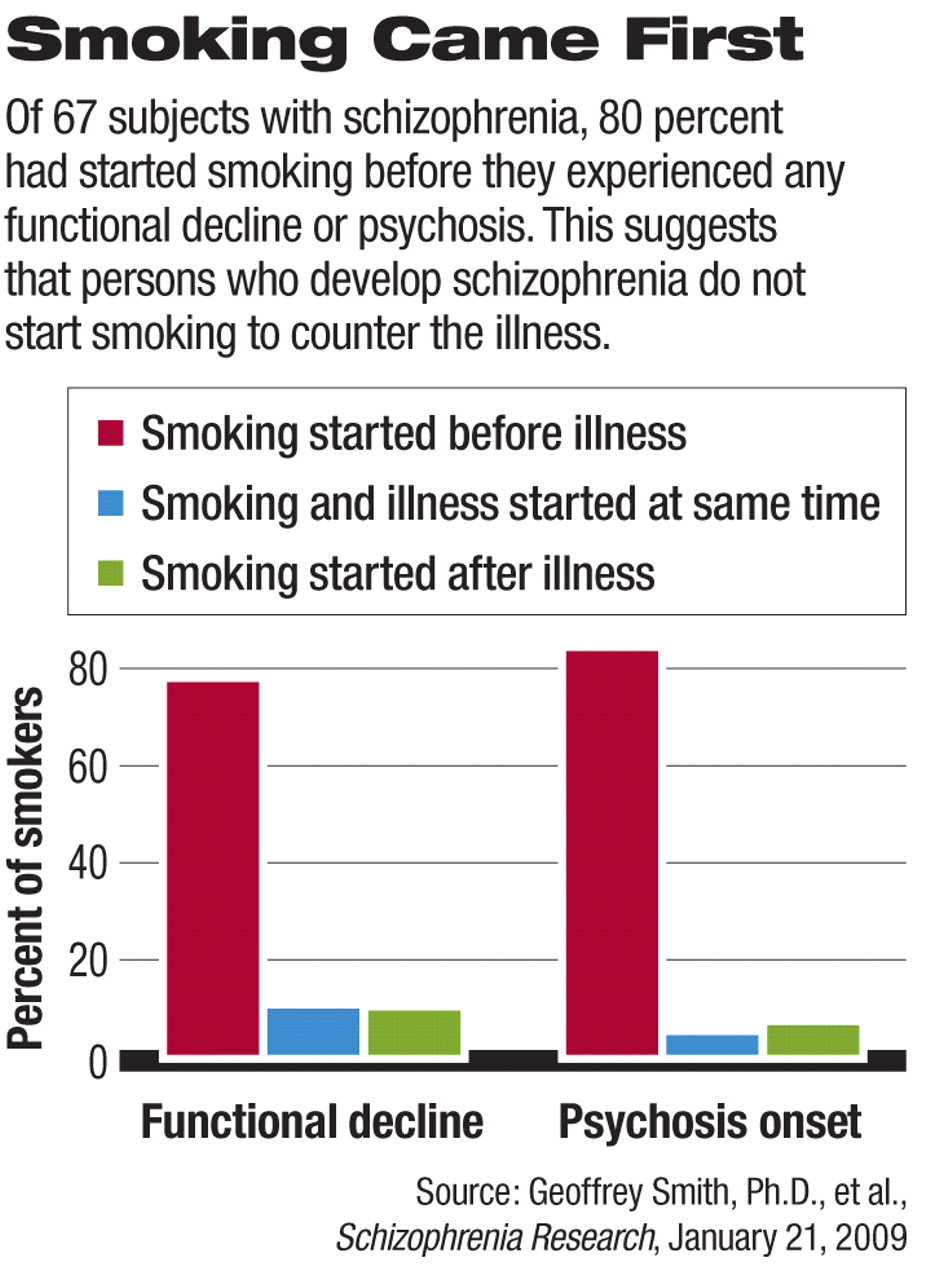While several American clinicians are focused on trying to help persons with schizophrenia quit smoking (see
Psychiatrists Can Be Crucial to Smoking Cessation), a team of Canadian researchers has been trying to find out why such individuals start smoking in the first place.
They now offer two surprising conclusions. One is that such individuals do not seem to take up smoking to treat their symptoms. The other is that some of these people may start smoking because they were exposed to tobacco smoke prenatally.
The lead investigator was Geoffrey Smith, Ph.D., a clinical assistant professor of psychiatry at the University of British Columbia. Study results were published in the March Schizophrenia Research.
The study included 115 first-episode schizophrenia subjects, from 14 to 37 years of age, with an average age of 21. Of the 67 subjects who smoked, 80 percent had started to smoke around 14 years of age, whereas they experienced functional decline or psychosis at around 19 years of age.
This finding, Smith told Psychiatric News, argues against the“ common wisdom... that schizophrenia patients smoke in order to treat their symptoms.”
So if it is not to alleviate their symptoms, why do they start smoking? One reason may be because they were exposed to tobacco prenatally, Smith and his group suggested on the basis of related findings that emerged from their study. Out of their 115 subjects, information for 80 was available as to whether their mothers had smoked while pregnant with them. Of the 80, 26 had mothers who had smoked while pregnant; the remaining 54 did not. Those subjects whose mothers had smoked were almost three times more likely to be smokers themselves as were subjects whose mothers had not smoked. (Whether the mothers who smoked prenatally continued to smoke as their child grew up, thus exposing them to more nicotine as well as role-modeling the habit itself, was not addressed by the researchers.)
But how might prenatal exposure to smoking prompt people who are going to develop schizophrenia to start smoking? Smith and his colleagues do not know, but they suspect that it might be by damaging nicotinic receptors in the brain. After all, some persons with schizophrenia have been found to have a paucity of nicotinic receptors, the brain's first line of response to nicotine from smoking. “However, no published research has explored the possibility that the nicotine receptor dysfunction in some patients results from prenatal nicotine exposure,” Smith said. He and his team will now be conducting research to test that hypothesis.
Meanwhile, other questions about the connection between schizophrenia, smoking, and nicotinic receptors abound. For example, could prenatal exposure to smoking not just damage nicotinic receptors but actually lead to schizophrenia? There is a possibility that it might since prenatal nicotine exposure disrupts brain development in animals, since learning and attention deficits in schizophrenia subjects have been linked with nicotinic receptor dysfunction, and since treatment with a nicotinic receptor agonist seems to improve cognition in schizophrenia subjects (Psychiatric News, July 18, 2008).
The study by Smith and colleagues was funded by the Canadian Institutes of Health Research, the British Columbia Mental Health and Addiction Services, and the Michael Smith Foundation for Health Research.
An abstract of “Predictors of Starting to Smoke Cigarettes in Patients With First Episode Psychosis” can be accessed at<www.sciencedirect.com> by clicking “S” under “Browse by Title,” then“ Schizophrenia Research,” and finally the March 2009 issue. ▪

